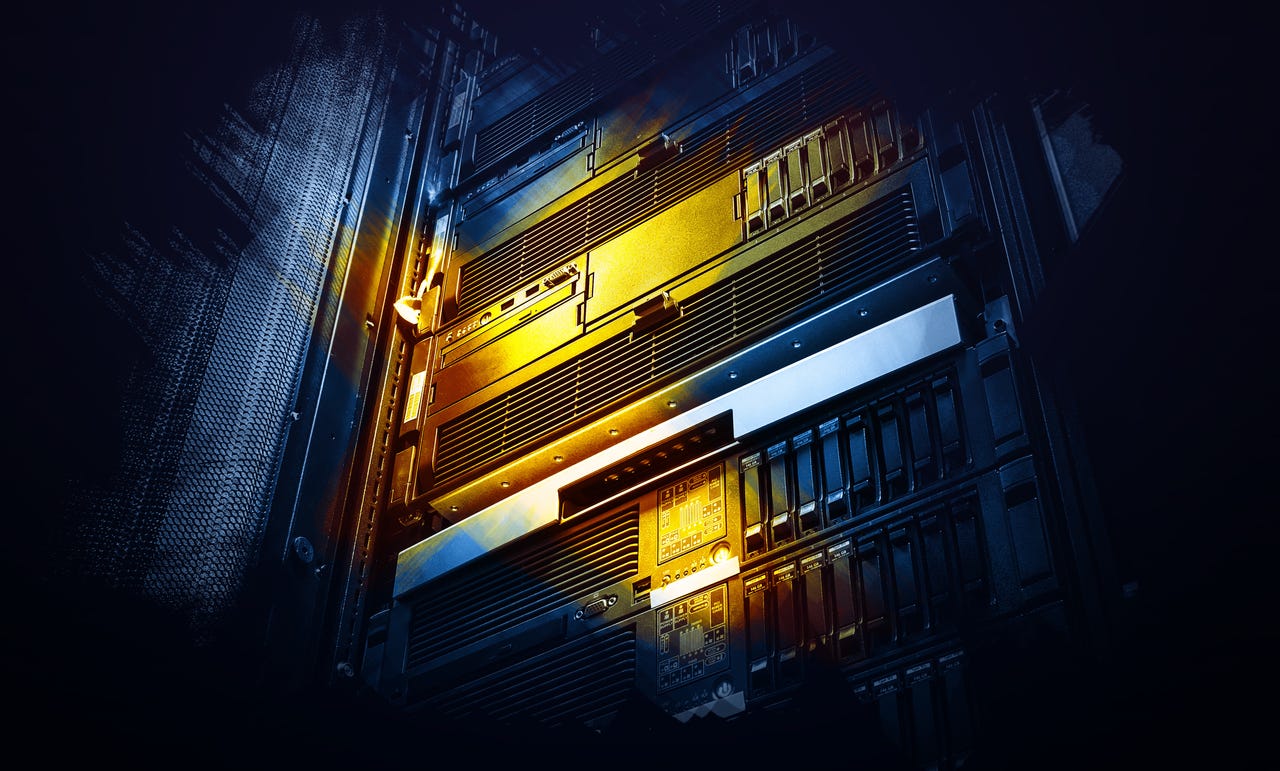
Embracing the Future of Speed: The Linux Foundation's Support for Superior, Exascale Computing Systems

Embracing the Future of Speed: The Linux Foundation’s Support for Superior, Exascale Computing Systems

Vladimir_Timofeev/Getty Images
High-performance computing (HPC) uses parallel data processing to deliver the speediest possible computing performance. Whether it’s supercomputers, such as the Exabyte fast Frontier HPE Cray supercomputer , or clusters of hundreds or thousands of servers, it’s all about taking complex tasks and running them as fast as machinely possible.
Now, The Linux Foundation , a leading open-source innovation organization, has announced two new foundations for advancing HPC and storage solutions: The High-Performance Software Foundation (HPSF) and the DAOS Foundation .
Also: How to choose the right Linux desktop distribution for you
The HPSF aims to build, promote, and advance a portable core software stack for high-performance computing. The stack consists of 10 different programs. These are:
- Spack : the HPC package manager
- Kokkos : a performance-portable programming model for writing modern C++ applications in a hardware-agnostic way.
- AMReX : a performance-portable software framework designed to speed up solving partial differential equations on block-structured, adaptively refined meshes.
- WarpX : a performance-portable Particle-in-Cell code with advanced algorithms that won the 2022 Gordon Bell Prize
- Trilinos : a collection of reusable scientific software libraries, known in particular for linear, non-linear, and transient solvers, as well as optimization and uncertainty quantification.
- Apptainer : a container system and image format specifically designed for secure, high-performance computing.
- VTK-m : a toolkit of scientific visualization algorithms for accelerator architectures.
- HPCToolkit : performance measurement and analysis tools for computers ranging from laptops to the world’s largest GPU-accelerated supercomputers.
- E4S : the Extreme-scale Scientific Software Stack
- Charliecloud : HPC-tailored, lightweight, fully unprivileged container implementation.
What do these programs have in common? They’re all open-source, which only makes sense. For years, Linux and open-source computing have powered all the TOP500 supercomputers
Newsletters
ZDNET Tech Today
ZDNET’s Tech Today newsletter is a daily briefing of the newest, most talked about stories, five days a week.
Subscribe
They’re also all designed to simplify life for high-performance software developers. With them, programmers can gain continuous integration, turnkey software stacks, and performance testing. This will make their lives much easier.
This new foundation addresses the growing ubiquity of HPC in scientific computing, digital engineering, and AI applications. The foundation plans to leverage investments from the US Department of Energy’s Exascale Computing Project , the EuroHPC Joint Undertaking , and other international projects to enhance performance across diverse computing architectures.
Also: Linux has over 3% of the desktop market? It’s more complicated than that
Key supporters of HPSF include Amazon Web Services, Argonne National Laboratory, CEA, CIQ, Hewlett Packard Enterprise, Intel, and NVIDIA, among others. The foundation will establish a technical advisory committee to manage working groups on various HPC topics, following a governance model inspired by the Cloud Native Computing Foundation (CNCF) .
In short, Rick Stevens, Argonne National Laboratory ‘s associate laboratory director for computing, environment, and life sciences, explained, “HPSF will provide a collaborative environment and access to resources that will enable the community to collectively develop the software needed to drive current and future generation HPC systems, and Argonne is honored to join as a founding member.”
The DAOS Foundation focuses on the governance and development of the Distributed Asynchronous Object Storage (DAOS) project. Pronounced to rhyme with “boss,” DAOS is a high-performance open-source storage system that has revolutionized performance for HPC and AI workloads. It offers a fully distributed key-value storage architecture, overcoming the limitations of traditional POSIX-based HPC storage systems.
Also: AI pioneer Cerebras is having ‘a monster year’ in hybrid AI computing
DAOS supports high bandwidth, low latency, and high I/O operations per second (IOPS). Again, the name of the game is speed, speed, speed. This is a mature project that Intel started working on in 2012. Intel will donate the DAOS source code to the foundation and continue as a major contributor.
Like HPFS, DAOS comes with the support of a laundry list of HPC movers and shakers, such as Argonne National Laboratory, Enakta Labs, Google Cloud, Hewlett Packard Enterprise, and Intel.
Under the Linux Foundation umbrella, these two foundations signify a major leap in collaborative efforts toward advancing open-source solutions in high-performance computing and storage. They’ll foster innovation, lower barriers to entry, and support the development of critical technologies in HPC and AI/ML.
Linux
The best Linux laptops for consumers and developers
Want to save your aging computer? Try these 5 Linux distributions
The best distros for beginners
How to enable Linux on your Chromebook (and why you should)
- The best Linux laptops for consumers and developers
- Want to save your aging computer? Try these 5 Linux distributions
- The best distros for beginners
- How to enable Linux on your Chromebook (and why you should)
Also read:
- [New] 2024 Approved Premium 4K TVs – The Ultimate List
- [New] Composing Prime Canon Temporal Videos
- [New] How To Make Your LinkedIn Profile Professional
- [New] In 2024, Cutting-Edge Free Audio for YouTube Visionaries
- [New] Integrating Sounds and Music Into Your Instagram Videos for 2024
- [New] Synergizing Brands on Video Platforms
- [New] Top 6 NFT Makers for Artists to Unleash Imagination
- [New] Unhackable Blueprint for Inserting Your TikTok Links
- [Updated] The Budget-Friendly Filmmaker's Dream
- 2024 Approved The Most Popular Free Soundtrack Sites for Gamers
- 2024 Approved Unlocking Full Potential of Mac's Preview Tool
- 7 Ways to Lock Apps on Apple iPhone 15 Plus and iPad Securely
- Amplify Audience Response with Unique Instagram Quiz Features for 2024
- Experience Lightning-Quick Storage Connectivity: Kioxia Introduces Optically Linked SSD for Distances Beyond 40 Meters Away
- In 2024, The Art of Mastering Funimate
- In 2024, The Ultimate Guide Altering Voices for a Competitive Edge in Free Fire
- Meaning Behind Invisible User Presence
- Reimagine Your Interactions with This Chrome GPT Companion
- Transforming Storytelling Into Cinematic Art for 2024
- Title: Embracing the Future of Speed: The Linux Foundation's Support for Superior, Exascale Computing Systems
- Author: Donald
- Created at : 2024-12-16 23:49:27
- Updated at : 2024-12-21 01:53:37
- Link: https://some-tips.techidaily.com/embracing-the-future-of-speed-the-linux-foundations-support-for-superior-exascale-computing-systems/
- License: This work is licensed under CC BY-NC-SA 4.0.